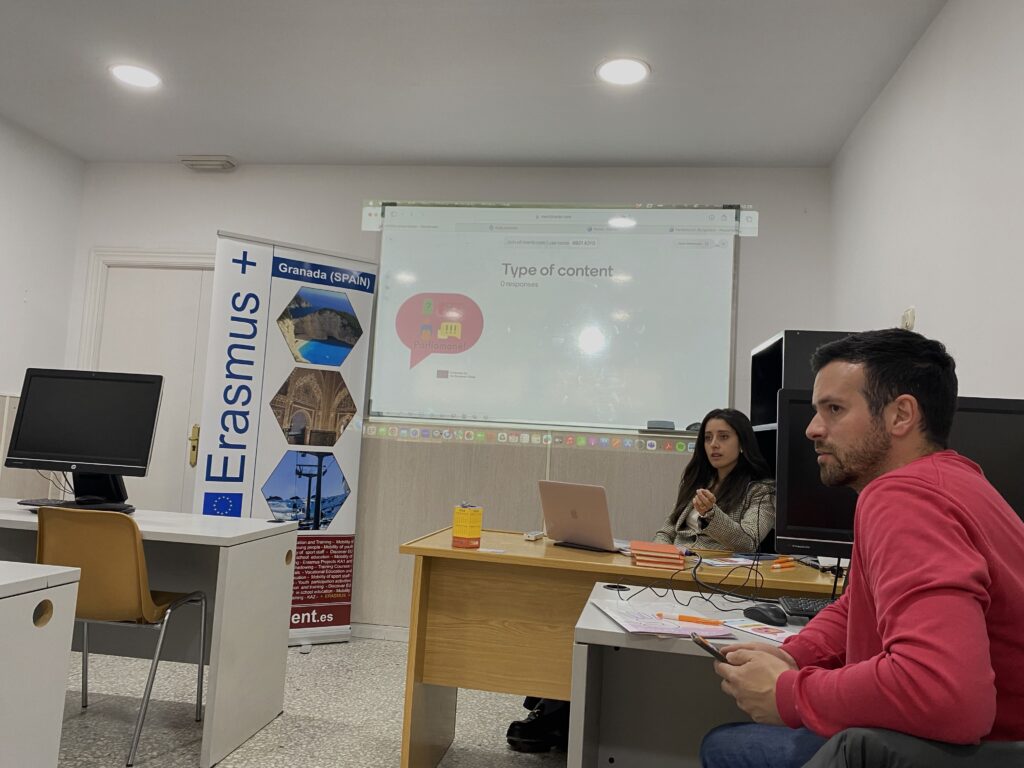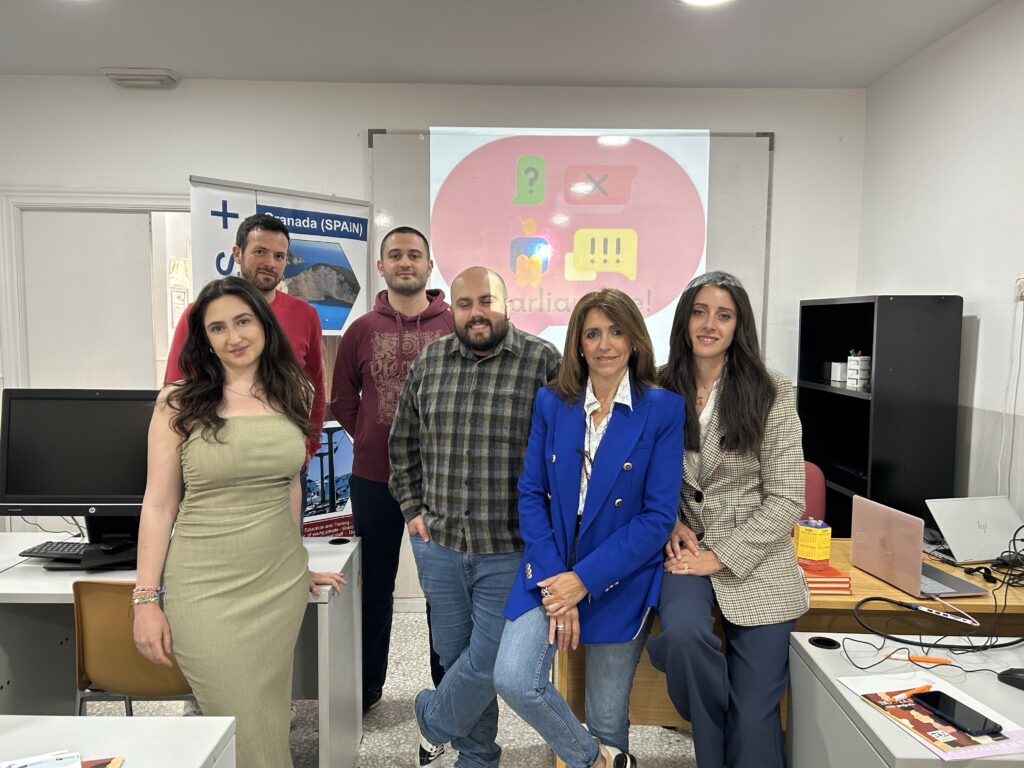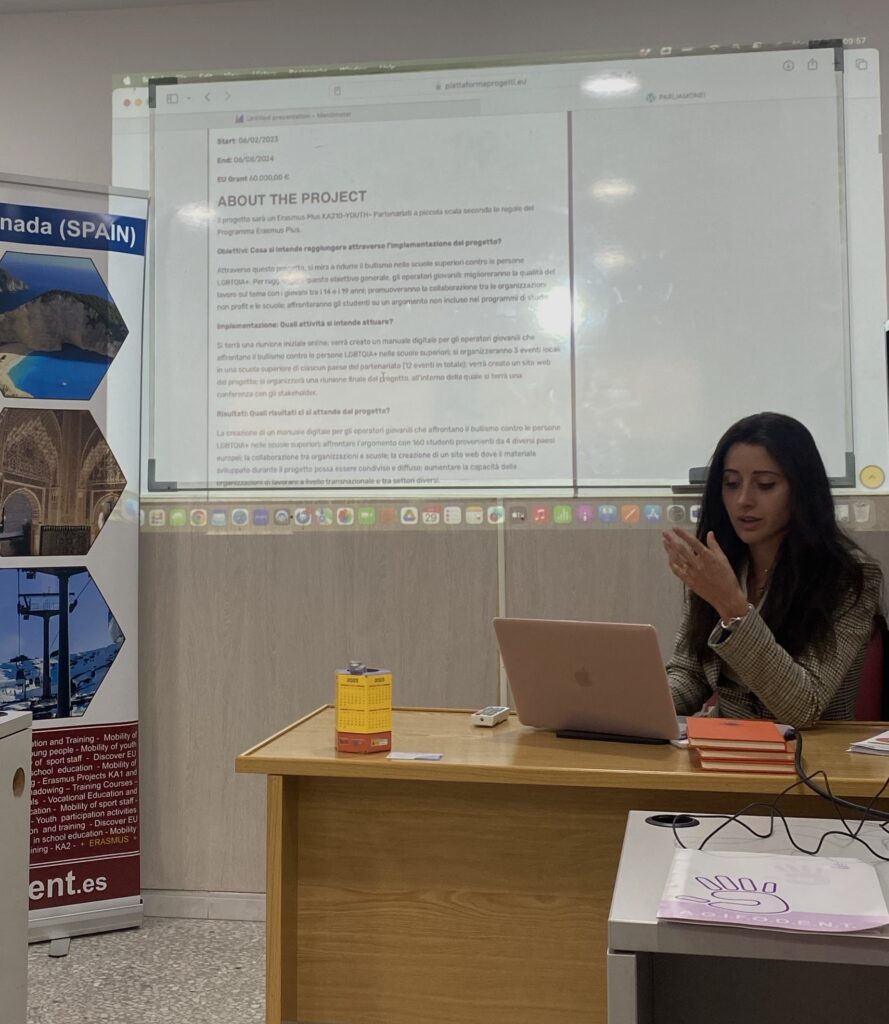PARLIAMONE!
2022-3-IT03-KA210-YOU-000093832


Funded by the European Union. Views and opinions expressed are however those of the author(s) only and do not necessarily reflect those of the European Union or the European Education and Culture Executive Agency (EACEA). Neither the European Union nor EACEA can be held responsible for them.
Programme: Erasmus+
Project Reference: 2022-3-IT03-KA210-YOU-000093832
Action Type: Small-scale partnerships in youth
Key Action: Partnerships for cooperation and exchanges of practices
Start: 06/02/2023
End: 05/08/2024
EU Grant 60.000,00 €
IL PROGETTO
Il progetto sarà un Erasmus Plus KA210-YOUTH- Partenariati a piccola scala secondo le regole del Programma Erasmus Plus.
Obiettivi: Cosa si intende raggiungere attraverso l’implementazione del progetto?
Attraverso questo progetto, si mira a ridurre il bullismo nelle scuole superiori contro le persone LGBTQIA+. Per raggiungere questo obiettivo generale, gli operatori giovanili: miglioreranno la qualità del lavoro sul tema con i giovani tra i 14 e i 19 anni; promuoveranno la collaborazione tra le organizzazioni non profit e le scuole; affronteranno gli studenti su un argomento non incluso nei programmi di studio.
Implementazione: Quali attività si intende attuare?
Si terrà una riunione iniziale online; verrà creato un manuale digitale per gli operatori giovanili che affrontano il bullismo contro le persone LGBTQIA+ nelle scuole superiori; si organizzeranno 3 eventi locali in una scuola superiore di ciascun paese del partenariato (12 eventi in totale); verrà creato un sito web del progetto; si organizzerà una riunione finale del progetto, all’interno della quale si terrà una conferenza con gli stakeholder.
Risultati: Quali risultati ci si attende dal progetto?
La creazione di un manuale digitale per gli operatori giovanili che affrontano il bullismo contro le persone LGBTQIA+ nelle scuole superiori; affrontare l’argomento con 160 studenti provenienti da 4 diversi paesi europei; la collaborazione tra organizzazioni e scuole; la creazione di un sito web dove il materiale sviluppato durante il progetto possa essere condiviso e diffuso; aumentare la capacità delle organizzazioni di lavorare a livello transnazionale e tra settori diversi.
ABOUT THE PROJECT
The project will be an Erasmus Plus KA210-YOUTH- Small-scale partnerships according to Erasmus Plus
Programme rules.
Objectives: What do you want to achieve by implementing the project?
Through this project, it aims to reduce the bullying in high schools against LGBTQIA+ people. To reach this general objective, the youth workers: will improve the quality of the work on the subject with young people between 14 and 19 years old; to promote the collaboration between the no profit organizations and the schools; to deal with students on a topic not embraced in the curricula.
Implementation: What activities are you going to implement?
An online kick off meeting will take place; a digital manual for youth workers dealing with bullying against
LGBTQIA+ people in high schools will be created; 3 local events will be organized in a high school of each
country of the partnership (12 events in total); a project website will be created; a final project meeting will be organized, within which a conference with stakeholders will be organized.
Results: What results do you expect your project to have?
The creation of a digital manual for youth workers dealing with bullying against LGBTQIA + people in high
schools; to deal with the topic with 160 students from 4 different European countries; the collaboration
between organizations and schools; the creation of a website where the material developed during the
project can be shared and disseminated; to build the capacity of the organizations to work transnationally
and across sectors.
PARTNERSHIP
GAYCS LGBT ASSOCIAZIONE DI PROMOZIONE- Italia
LEAD PARTNER

GAYCS LGBT è oggi una realtà importante nel territorio italiano, nato nel 2012 come Dipartimento nazionale LGBT di AICS – Associazione Italiana Cultura Sport. L’ente dalla sua fondazione ha realizzato molteplici iniziative nel campo della cultura e dello sport a promozione dei diritti LGBTQI misurandosi con diversi progetti locali, nazionali ed europei. Dalla sua nascita ha raccolto punti di ascolto e visibilità a Roma, Genova, Bologna, Cesena, Imola, Torino, Milano, Ancona, Vicenza, Modena e Napoli. Lo sviluppo della rete GAYCS è in continua evoluzione grazie ad un programma che prevede l’attivazione di nuove realtà̀ in coincidenza con tutte le sedi territoriali di AICS presenti in ogni capoluogo e non solo. L’associazione si occupa della promozione, tutela dei diritti LGBTQI in Italia attraverso la realizzazione e promozione di iniziative sportive, culturali, formative e turistiche in Italia ed Europa. Gaycs è responsabile della Nazionale Italiana Gay Friendly, dal 2019 è coordinatore del
progetto europeo Run for Equality e dal gennaio 2020 It’s All about us finanziati dal Programma
Erasmus Plus Sport della Commissione Europea.
GAYCS LGBT is now a significant presence in the Italian territory, established in 2012 as the LGBT National Department of AICS – Italian Association of Culture and Sport. Since its inception, the organization has carried out numerous initiatives in the fields of culture and sports to promote LGBTQI rights, engaging in various local, national, and European projects. Since its inception, it has established points of contact and visibility in Rome, Genoa, Bologna, Cesena, Imola, Turin, Milan, Ancona, Vicenza, Modena, and Naples. The development of the GAYCS network is continuously evolving through a program that involves the activation of new entities in coordination with all the territorial branches of AICS present in each capital and beyond. The association is engaged in promoting and protecting LGBTQI rights in Italy by organizing and promoting sports, cultural, educational, and touristic initiatives in Italy and Europe. Gaycs is responsible for the Italian Gay Friendly National Team, and since 2019, it has been coordinating the European project “Run for Equality,” and since January 2020, “It’s All about us,” funded by the Erasmus Plus Sport Program of the European Commission.
AGIFODENT – Asociacion Granadina para la informacion, formacion y desarrollo de las nuevas tecnologias– SPAIN
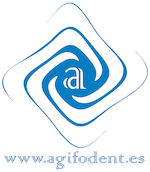
AGIFODENT è un’organizzazione senza scopo di lucro nata alla fine del 2002 e situata a Granada. Si tratta di una organizzazione educativa ombrello che fornisce alle scuole servizi per i progetti di mobilità, affiancamento al lavoro, corsi di formazione europei. È stata creata per informare, formare ed educare le istituzioni e il pubblico sui programmi europei, insieme a promuovere le nuove tecnologie (specialmente ICT) e l’educazione offrendo software gratuiti. Lavora per affrontare gli attuali problemi in Europa, partecipando a progetti internazionali per promuovere discussioni e dibattiti su problemi sociali quali: esclusione sociale e rinserimento nella società della popolazione emarginata, razzismo, delinquenza,
ambiente, povertà e cambiamento climatico. Questo viene fatto da una prospettiva transnazionale per rendere possibile lo scambio di conoscenze ed esperienze tra i paesi europei, sviluppando servizi per l’apprendimento culturale, interculturale e linguistico.
AGIFODENT is a non-profit organization established at the end of 2002 and located in Granada. It operates as an umbrella educational organization that provides schools with services for mobility projects, work placement support, and European training courses. It was created to inform, train, and educate institutions and the public about European programs, as well as to promote new technologies (especially ICT) and education by offering free software. AGIFODENT works to address current issues in Europe by participating in international projects that promote discussions and debates on social issues such as social exclusion and reintegration of marginalized populations, racism, delinquency, environment, poverty, and climate change. This is done from a transnational perspective to facilitate the exchange of knowledge and experiences among European countries, while developing services for cultural, intercultural, and linguistic learning.
Bulgarian Youth Association- Bulgaria

Bulgarian Youth Association è un’organizzazione giovanile no profit con sede a Sofia, in Bulgaria. Nata nel 2014 grazie a un gruppo di giovani, ha come scopo principale quello di supportare il coinvolgimento attivo dei giovani in varie aree della vita pubblica; promuovere lo sviluppo personale e la cittadinanza attiva, il volontariato e la mobilità giovanile, lo sport e uno stile di vita sano; supportare lo sviluppo delle abilità e del potenziale dei giovani di diversi gruppi etnici e sociali, e dei giovani con disabilità. Bulgarian Youth Association partecipa a vari progetti nazionali e internazionali; infatti una delle sue principali
priorità è quella di sviluppare partenariati internazionali con altre organizzazioni per lo scambio attivo di idee e buone pratiche, creando una ricca rete di partner europei. I membri dell’organizzazione sono coinvolti nello sviluppo, valutazione e gestione di vari progetti nel settore sociale, educativo e dei media.
The Bulgarian Youth Association is a non-profit youth organization based in Sofia, Bulgaria. Established in 2014 by a group of young people, its main purpose is to support the active involvement of young individuals in various areas of public life. It aims to promote personal development and active citizenship, volunteering, youth mobility, sports, and a healthy lifestyle. The organization also strives to support the development of skills and potential among young people from different ethnic and social groups, as well as young individuals with disabilities. The Bulgarian Youth Association takes part in various national and international projects. In fact, one of its main priorities is to establish international partnerships with other organizations for active exchange of ideas and best practices, creating a diverse network of European partners. The members of the organization are engaged in the development, evaluation, and management of various projects in the social, educational, and media sectors.
JSC Toro Group- LITUANIA

T.O.R.O. (Training. Openness. Readiness. Opportunities) è un’impresa di formazione e di coaching/mentoring con sede a Vilnius, Lithuania. La sua principale attività è l’organizzazione di attività di formazione formale, informale e non- formale sia per i giovani sia per gli adulti. Organizza anche attività di formazione per le imprese riguardo al team building. T.O.R.O. sviluppa metodi e strumenti di formazione nuovi e innovativi, contenuti curriculari, risorse educative aperte, MOOCs, contenuti di formazione online, e-classrooms e procura consigli su come implementare attività di apprendimento miste e corsi digitali. Inoltre, T.O.R.O. sviluppa podcast come efficienti “pillole” di formazione e audio-lezioni informative che possono essere perfettamente usate nei corsi di formazione. Infine organizza attività informali di formazione per sviluppare il benessere nelle persone usando metodi come NIA, Terapia Integrativa di Danza, ecc.
T.O.R.O. (Training. Openness. Readiness. Opportunities) is a training and coaching/mentoring enterprise based in Vilnius, Lithuania. Its main activity revolves around organizing formal, informal, and non-formal training activities for both young people and adults. It also offers training activities for businesses related to team building. T.O.R.O. develops new and innovative training methods and tools, curriculum content, open educational resources, MOOCs, online training content, e-classrooms, and provides advice on implementing blended learning activities and digital courses. Additionally, T.O.R.O. creates podcasts as efficient “learning capsules” and informative audio lessons that can be seamlessly incorporated into training courses. Lastly, it organizes informal training activities aimed at enhancing well-being in individuals through methods like NIA, Integrative Dance Therapy, and more.
KICK OFF MEETING 06/10/2023
Siamo assolutamente entusiasti di annunciare che abbiamo avviato il nostro nuovo progetto
“Parliamone”( N 2022-3-IT03-KA210-YOU-000093832), finanziato dalla commissione europea, programma Erasmu Plus. L’entusiasmo e l’eccitazione tra i nostri partner erano palpabili quando abbiamo dato il via a questa iniziativa durante il nostro kick off online che si è svolto oggi 6 ottobre.
È stata l’occasione per presentare le organizzazioni partner e i membri dei loro team responsabili
dell’attuazione del progetto. Il progetto è stato presentato con grande entusiasmo e sono state
definite le responsabilità specifiche di ciascun partner. Abbiamo discusso i contenuti del manuale
digitale che verrà creato e ci siamo divisi il compiti da fare. Inoltre, abbiamo dato pure il via per
iniziare a selezionare e avviare immediatamente la collaborazione con una scuola locale, dove si
svolgeranno gli eventi locali. La tempistica di tutte le attività è stata accuratamente delineata e
l’entusiasmo e la disponibilità dei partner a lavorare insieme hanno reso l’incontro un’esperienza
davvero produttiva e piacevole. Ogni partner ha condiviso con entusiasmo la propria visione di
“Parliamone” e della collaborazione futura. Siamo estremamente grati per la facilità di
comunicazione e la cooperazione di tutti i nostri partner, che hanno reso il processo fluido ed
efficiente. Insieme, siamo pronti ad avere un impatto significativo e a promuovere una
comunicazione e un dialogo aperti nelle nostre comunità.
KICK OFF 06/10/2023
We are absolutely delighted to announce that we had embarked on our new project “Let’s Talk” ( ( N 2022-3-IT03-KA210-YOU-000093832) funded by the European Commission, under the program Erasmus Plus. The enthusiasm and excitement among our partners were palpable as we kicked off this endeavor during our online kick off meeting that has taken place today 6th of October.
I has been the opportunity to introduce the partner organizations and their dedicated team members
responsible for project implementation. The project was presented with great enthusiasm, and the
specific responsibilities of each partner were defined. We discussed the contents of the digital
manual that will be created and divided the tasks to be done by each partner. In addition, we have
also given the go-ahead to start selecting and immediately start collaborating with a local school,
where local events will take place.
The timeline for all activities was carefully outlined, and the partners’ enthusiasm and willingness to
work together made the meeting a truly productive and enjoyable experience. Each partner eagerly
shared their vision for “Let’s Talk” and couldn’t have been more thrilled about the collaboration
ahead. We are extremely grateful for the easy-going communication and cooperation of all our
partners, making the process smooth and efficient. Together, we are ready to make a meaningful
impact and promote open communication and dialogue in our communities.
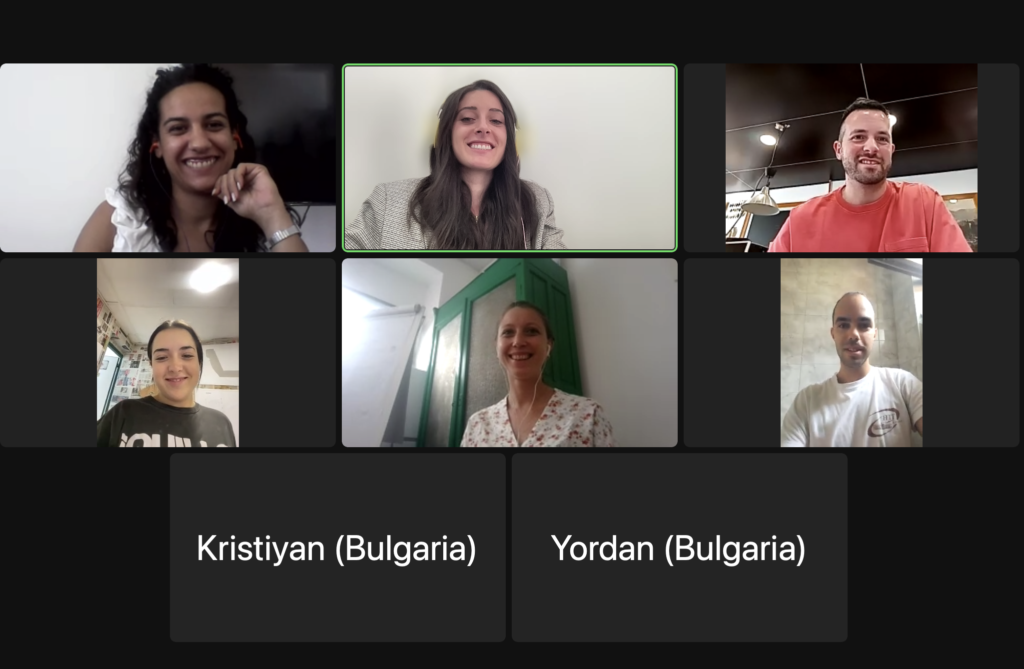
PRESENTAZIONE DEL PROGETTO
PRESENTATION OF THE PROJECT
REPORT KICK OFF MEETING
MANUALE DIGITALE
Gli enti del partenariato hanno creato un manuale digitale per animatori socioeducativi per trattare il bullismo contro le persone LGBTQIA+ nelle scuole superiori. Il manuale è stato diviso in due parti: una parte teorica e una parte pratica, con dinamiche e giochi di ruolo interattivi propri dell’educazione non formale. Nella parte teorica sono state presenti informazioni, definizioni e concetti utili per affrontare le questioni collegate al bullismo omofobico e di genere nelle scuole superiori. È stata inoltre presente una sezione specifica riguardante il cyberbullismo. Nella seconda parte sono stati delineati strumenti pratici, dinamiche, giochi di ruolo, attività di gamificazione e materiali di supporto per gli animatori socioeducativi, che sono stati loro indispensabili per poter trattare il tema del bullismo LGBTQIA+ con i ragazzi. Con la realizzazione di questo manuale si è voluto offrire una serie di contenuti, risorse, strumenti, attività e metodologie orientate ai professionisti nel campo della gioventù, per facilitare il loro lavoro con gli studenti negli eventi locali previsti dal progetto e per eventi successivi, sperando che la collaborazione fra associazioni di settore e scuole continui anche dopo il termine del progetto. Il manuale digitale è stato disponibile in inglese e nelle quattro lingue dei Paesi dei componenti del partenariato.
DIGITAL HANDBOOK
The partnership organizations have created a digital manual for socio-educational animators to address bullying against LGBTQIA+ individuals in high schools. The manual has been divided into two parts: a theoretical part and a practical part, featuring dynamics and interactive role-playing games characteristic of non-formal education. The theoretical part includes information, definitions, and concepts useful for tackling issues related to homophobic and gender-based bullying in high schools. Additionally, a specific section on cyberbullying is included. The second part outlines practical tools, dynamics, role-playing games, gamification activities, and support materials for socio-educational animators, which have been essential for them to address the issue of LGBTQIA+ bullying with students. The creation of this manual aimed to offer a range of content, resources, tools, activities, and methodologies aimed at youth professionals, to facilitate their work with students in the local events planned by the project and for subsequent events, hoping that collaboration between sector associations and schools will continue even after the project’s end. The digital manual has been made available in English and in the four languages of the partner countries.
EVENTI LOCALI NELLE SCUOLE
L’attività consiste in incontri nelle scuole, in ogni Paese del partenariato. Durante questi eventi locali, gli animatori socioeducativi hanno trattato i temi del bullismo LGBTQIA+ con gli studenti delle scuole superiori in modo da aumentare la loro comprensione e la loro sensibilità di genere e di orientamento sessuale.
Grazie ai contenuti del manuale digitale, gli animatori socioeducativi hanno avuto a disposizione gli strumenti per poter trattare i temi in questione con i ragazzi.
The activity consists of meetings in schools in each partner country. During these local events, socio-educational animators addressed the topics of LGBTQIA+ bullying with high school students to increase their understanding and sensitivity regarding gender and sexual orientation. Thanks to the contents of the digital manual, the socio-educational animators had the tools to address these topics with the students.
ITALIA
Il 04 dicembre 2023 , presso il Liceo Scientifico “E. Basile” a Palermo, è stato presentato un evento significativo che ha coinvolto attivamente più di trenta studenti. L’iniziativa, centrata sull’affrontare il bullismo contro le persone LGBTQIA+ nelle scuole superiori, ha visto la partecipazione attiva di studenti, docenti e esperti del settore.
L’evento ha preso vita grazie alla presentazione del “Manuale Digitale per Animatori Socioeducativi” risultato del progetto “PARLIAMONE”. Un’importante risorsa che mira a fornire strumenti e strategie concrete per contrastare il bullismo e creare un ambiente accogliente e inclusivo all’interno delle istituzioni scolastiche.
L’incontro ha preso avvio con una sessione introduttiva, in cui esperti nel campo hanno illustrato l’importanza di affrontare il bullismo contro le persone LGBTQIA+ e hanno presentato il manuale digitale come una guida preziosa per gli animatori socioeducativi. Nella prima parte dell’incontro si sono trattati temi quali il bullismo e cyberbullismo nelle scuole, si è parlato di stereotipi, pregiudizi, linguaggio, identità sessuale e omofobia. Nella seconda parte dell’incontro ci si è concentrati su esercitazioni pratiche e interattive dove sono state utilizzate le metodologie e le dinamiche sviluppate nella seconda parte del manuale digitale proprie dell’educazione non formale.
I partecipanti sono stati divisi in gruppi più piccoli per partecipare a sessioni interattive e workshop. Queste sessioni hanno offerto uno spazio sicuro e aperto in cui gli studenti hanno avuto l’opportunità di esplorare casi di bullismo, condividere esperienze e discutere strategie efficaci per contrastare tale comportamento.
Gli studenti, coinvolti attivamente nelle discussioni e nei workshop, hanno espresso apprezzamento per l’evento, evidenziando come sia stato un’opportunità preziosa per comprendere meglio le problematiche legate al bullismo e come ciascuno possa contribuire a creare un ambiente scolastico più inclusivo e accogliente per tutti. I ragazzi hanno inoltre creato una serie di slogan mirati a combattere il bullismo.
L’evento si è concluso con una riflessione condivisa sui passi successivi e sull’importanza di mettere in pratica quanto appreso durante la giornata.
In conclusione, la presentazione del Manuale Digitale per Animatori Socioeducativi è stata un momento di apprendimento significativo e un passo avanti importante nella lotta contro il bullismo nelle scuole superiori, promuovendo un ambiente scolastico più sicuro, rispettoso e inclusivo per tutti gli studenti.
ITALY
On December 4, 2023, at the “E. Basile” Scientific High School in Palermo, a significant event involving actively more than thirty students was presented. The initiative, focused on addressing bullying against LGBTQIA+ individuals in high schools, saw active participation from students, teachers, and industry experts.
The event came to life through the presentation of the “Digital Manual for Socio-Educational Animators,” a result of the “LET’S TALK ABOUT IT” project. An important resource aimed at providing tools and concrete strategies to counteract bullying and create a welcoming and inclusive environment within school institutions.
The meeting commenced with an introductory session where field experts highlighted the importance of addressing bullying against LGBTQIA+ individuals and introduced the digital manual as a valuable guide for socio-educational animators. The first part of the meeting addressed topics such as bullying and cyberbullying in schools, discussing stereotypes, prejudices, language, sexual identity, and homophobia. The latter part of the meeting focused on practical and interactive exercises using methodologies and dynamics developed in the latter section of the digital manual, typical of non-formal education.
Participants were divided into smaller groups to engage in interactive sessions and workshops. These sessions provided a safe and open space where students had the opportunity to explore instances of bullying, share experiences, and discuss effective strategies to counter such behavior.
The students, actively involved in discussions and workshops, expressed appreciation for the event, highlighting how it was a valuable opportunity to better understand issues related to bullying and how each individual can contribute to creating a more inclusive and welcoming school environment for everyone. The students also formulated a series of slogans aimed at combating bullying.
The event concluded with a shared reflection on the next steps and the importance of implementing what was learned during the day.
In conclusion, the presentation of the Digital Manual for Socio-Educational Animators was a significant learning moment and an important step forward in the fight against bullying in high schools, promoting a safer, more respectful, and inclusive school environment for all students.
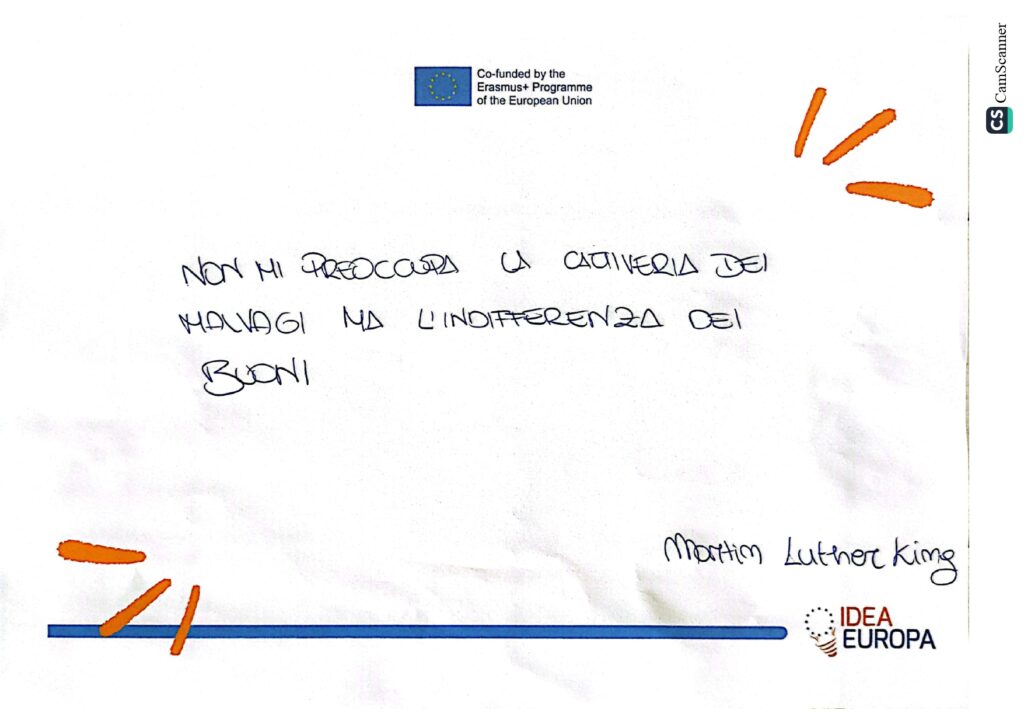

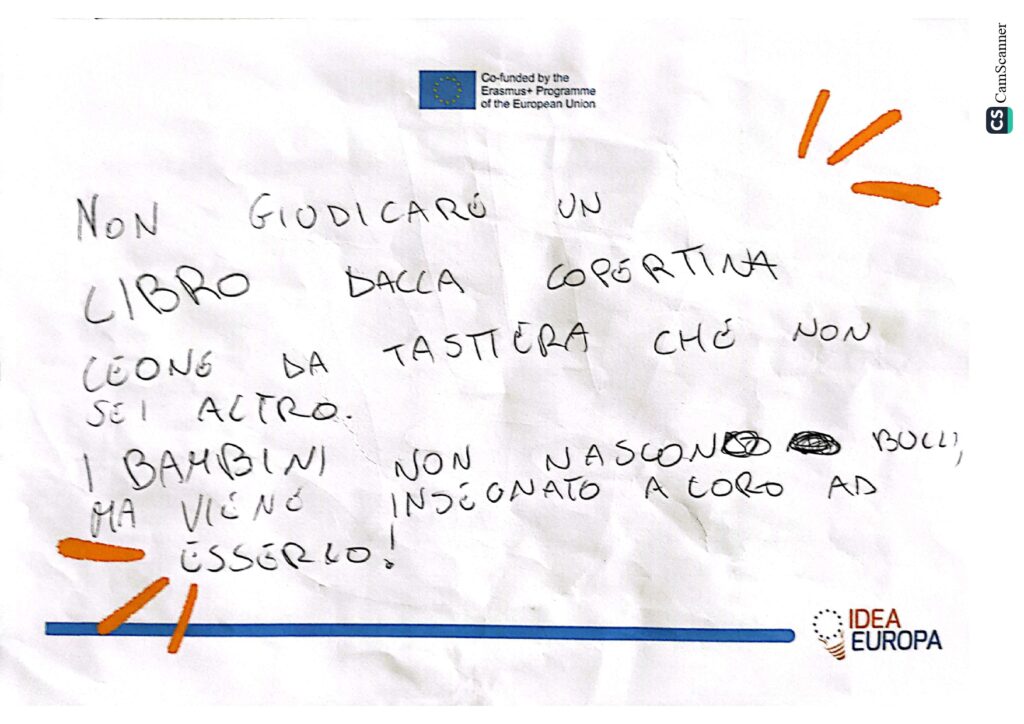
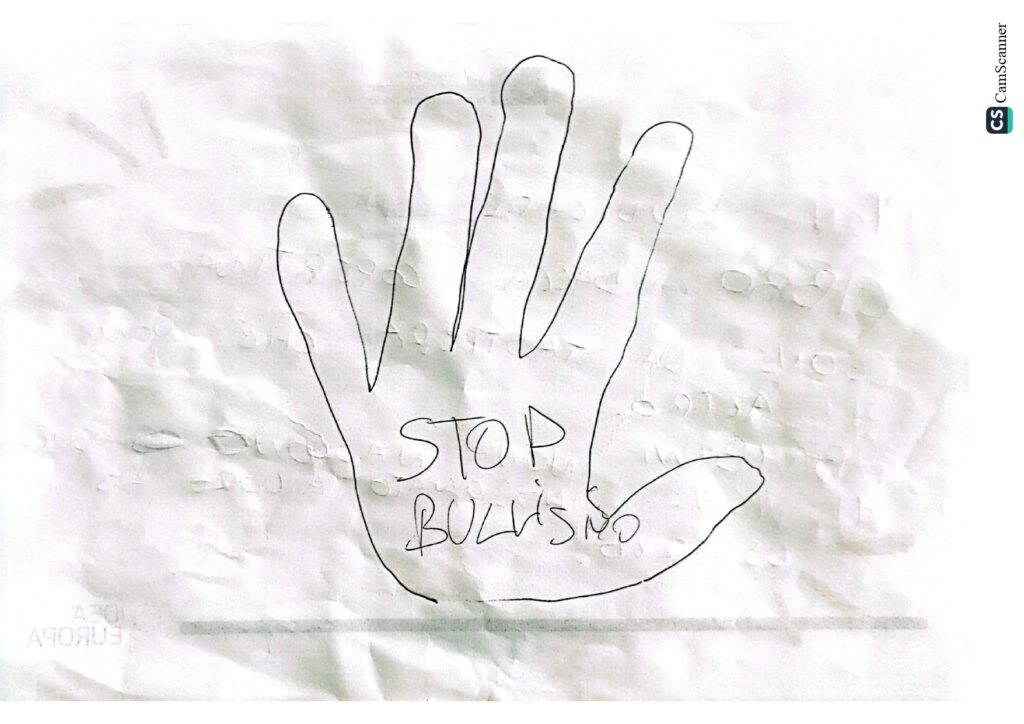
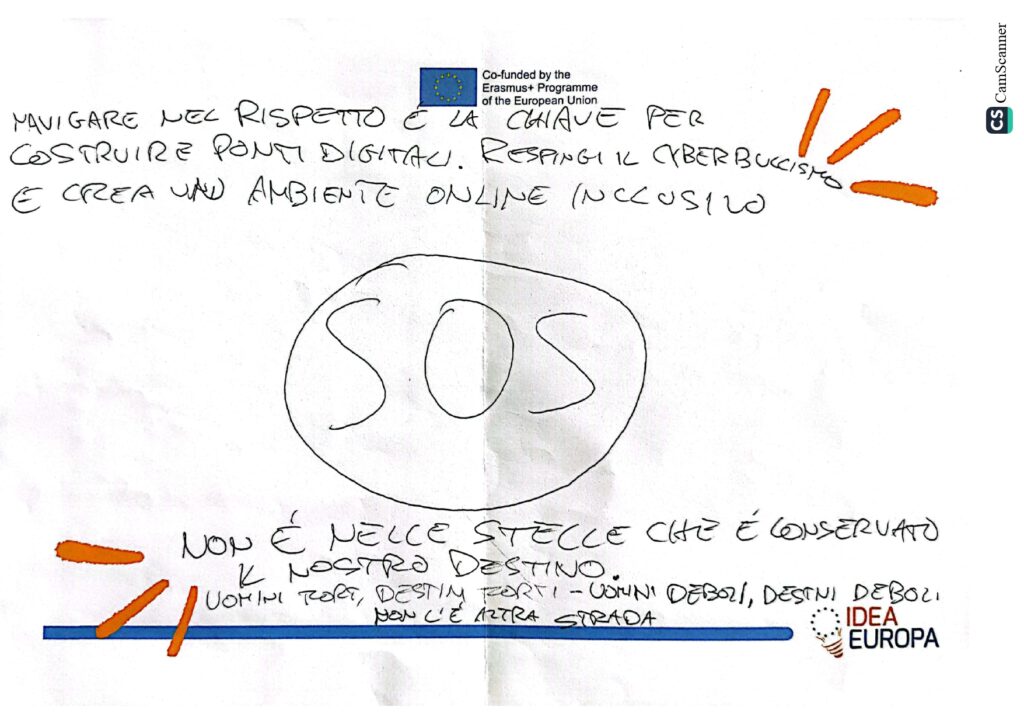

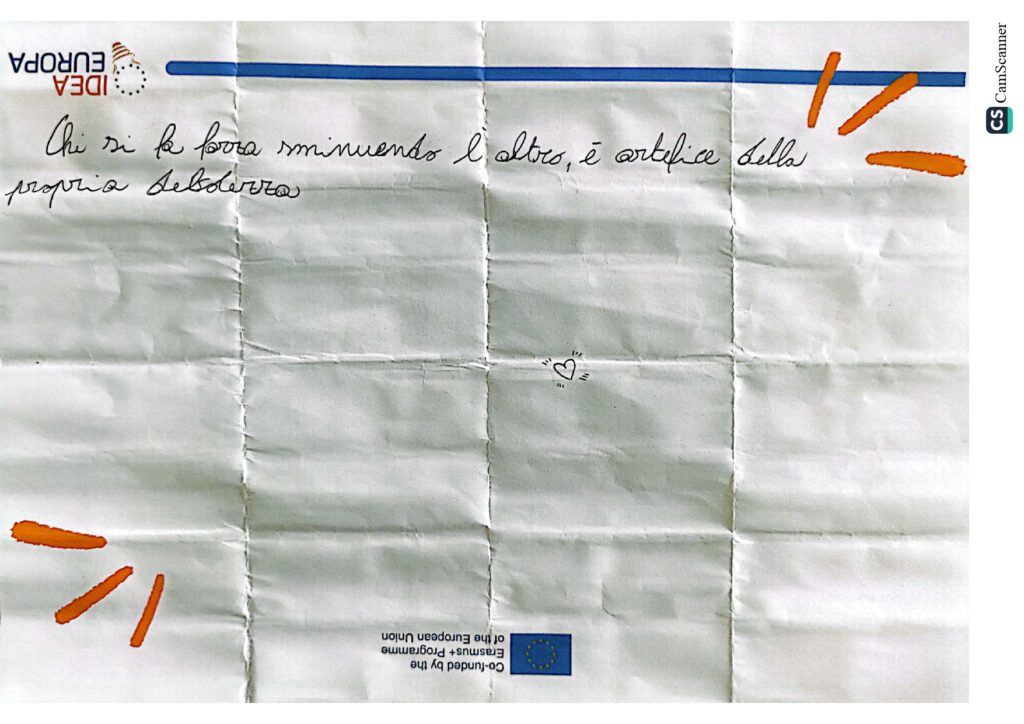
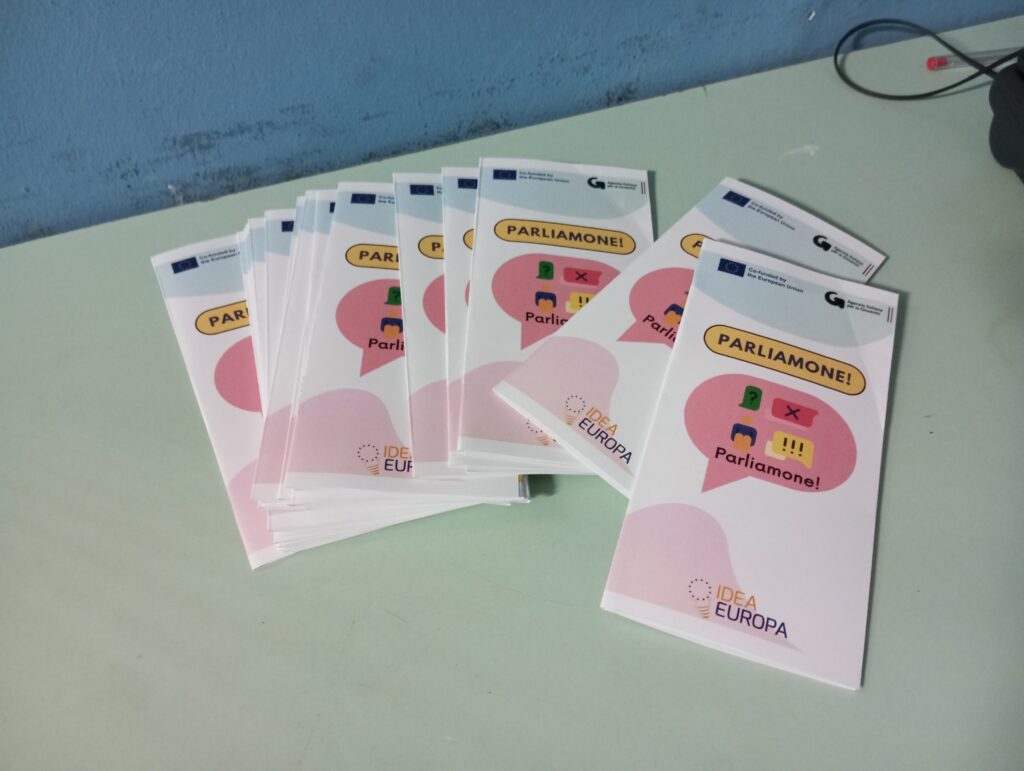
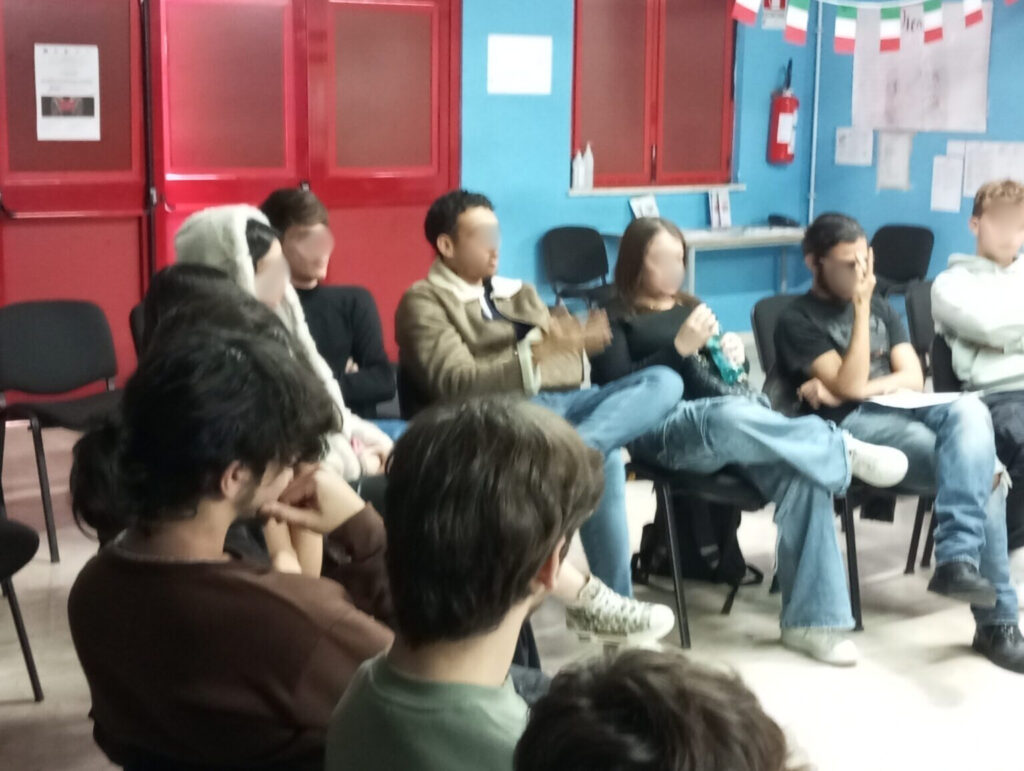
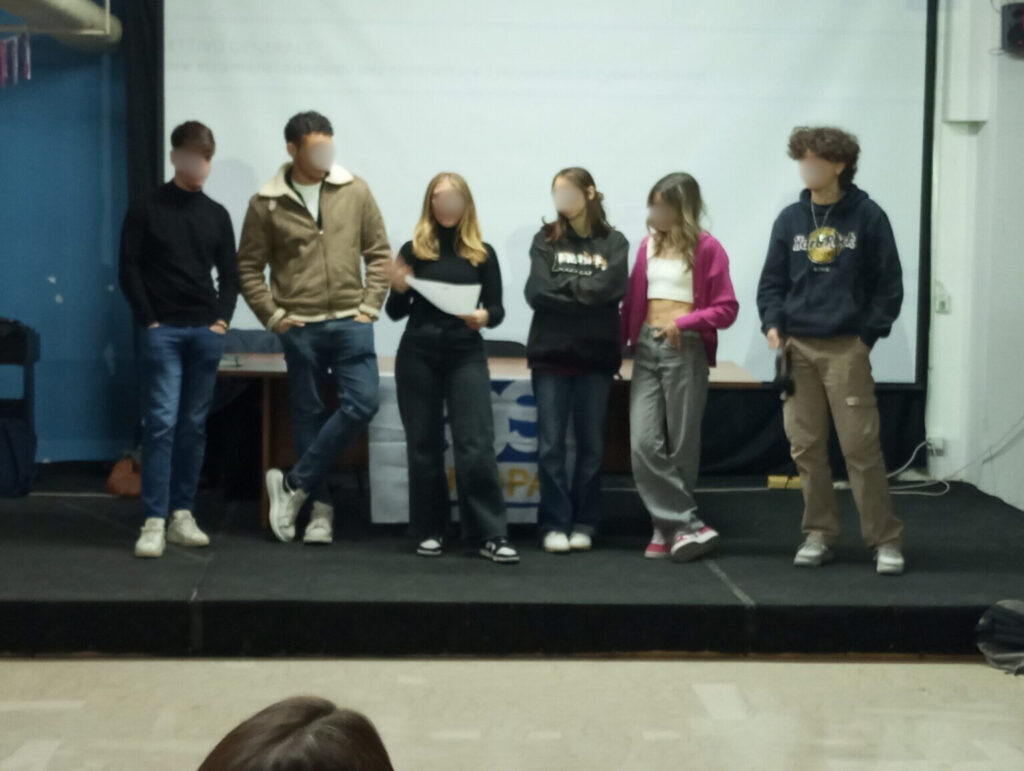

SPAGNA
Data: 04/03/2024
Luogo: Scuola Juan XXIII Cartuja
Partecipanti: Educatori, Studenti e Comunità Scolastica
Introduzione: Il seminario sul progetto Erasmus “Let’s Talk” si è tenuto con l’obiettivo principale di affrontare la sfida persistente del bullismo, con particolare attenzione al bullismo diretto verso le persone LGBTQIA+ nelle scuole secondarie. Questo fenomeno, noto come bullismo omofobico e di genere, è stato riconosciuto come un grave problema che colpisce non solo le vittime dirette, ma l’intera comunità scolastica.
Obiettivi: L’obiettivo principale del seminario era promuovere la comprensione, la tolleranza e l’inclusione all’interno della comunità scolastica, oltre a fornire agli educatori strumenti e conoscenze per affrontare efficacemente il bullismo contro le persone LGBTQIA+ nelle scuole secondarie.
Sviluppo: Durante il seminario è stato presentato il progetto Erasmus “Let’s Talk”, che si concentra sulla prevenzione e il contrasto del bullismo, specialmente rivolto alle persone LGBTQIA+. È stata sottolineata l’importanza dell’impegno collettivo di educatori, genitori, studenti e comunità per creare un ambiente sicuro e rispettoso nelle scuole. Interventi Speciali: Durante il seminario, abbiamo avuto l’intervento del direttore della Scuola Juan XXIII Cartuja, Pedro Díaz Cano, che ha espresso il suo impegno a creare un ambiente scolastico inclusivo e sicuro per tutti gli studenti. Inoltre, Antonio Paolo Miccoli, rappresentante dell’Associazione Agifodent, ha condiviso la sua esperienza e le sue prospettive sull’importanza di affrontare il bullismo e promuovere l’inclusione nelle scuole.
Conclusioni: Il seminario è stato un successo in termini di sensibilizzazione e partecipazione attiva dei partecipanti. È stata sottolineata l’importanza di continuare a lavorare sulla promozione dell’inclusione e della tolleranza nelle scuole, oltre a implementare politiche e programmi concreti per prevenire il bullismo. Si spera che le conoscenze e gli strumenti forniti durante il seminario contribuiscano a creare un ambiente scolastico più sicuro e rispettoso per tutti gli studenti, indipendentemente dal loro orientamento sessuale o identità di genere.
SPAIN
Date: 04/03/2024
Location: Juan XXIII Cartuja School
Participants: Educators, Students and School Community
Introduction:The seminar on the Erasmus project “Let’s Talk” was held with the main objective of
addressing the persistent challenge of bullying, with a particular focus on bullying
directed at LGBTQIA+ people in secondary schools. This phenomenon, known as
homophobic and gender-based bullying, has been recognized as a serious problem
affecting not only the direct victims, but the whole school community.
Objectives:The main objective of the seminar was to promote understanding, tolerance and
inclusion within the school community, as well as to provide educators with tools and
knowledge to effectively address bullying against LGBTQIA+ persons in secondary
schools.
Development:During the seminar, the Erasmus project “Let’s Talk” was presented, which focuses on
preventing and tackling bullying, especially targeting LGBTQIA+ people. The
importance of the collective commitment of educators, parents, students and
communities to create a safe and respectful environment in schools was emphasized.
Special Interventions:
During the seminar, we had the intervention of the director of the Juan XXIII Cartuja
School, Pedro Díaz Cano, who expressed his commitment to creating an inclusive and
safe school environment for all students. In addition, Antonio Paolo Miccoli,representative of the Agifodent Association, shared his experience and perspectives on
the importance of tackling bullying and promoting inclusion in schools.
Conclusions:The seminar was successful in terms of awareness raising and active participation of
the attendees. It emphasized the importance of continuing to work on promoting
inclusion and tolerance in schools, as well as implementing concrete policies and
programmes to prevent bullying. It is hoped that the knowledge and tools provided
during the seminar will contribute to creating a safer and more respectful school
environment for all students, regardless of their sexual orientation or gender identity.
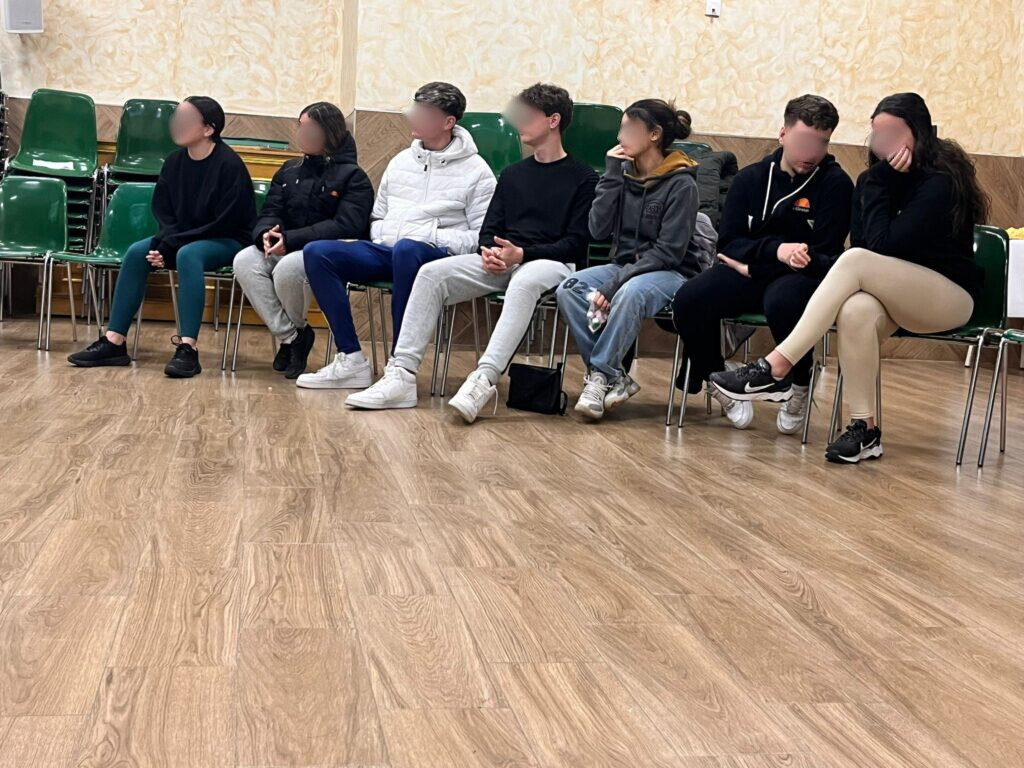
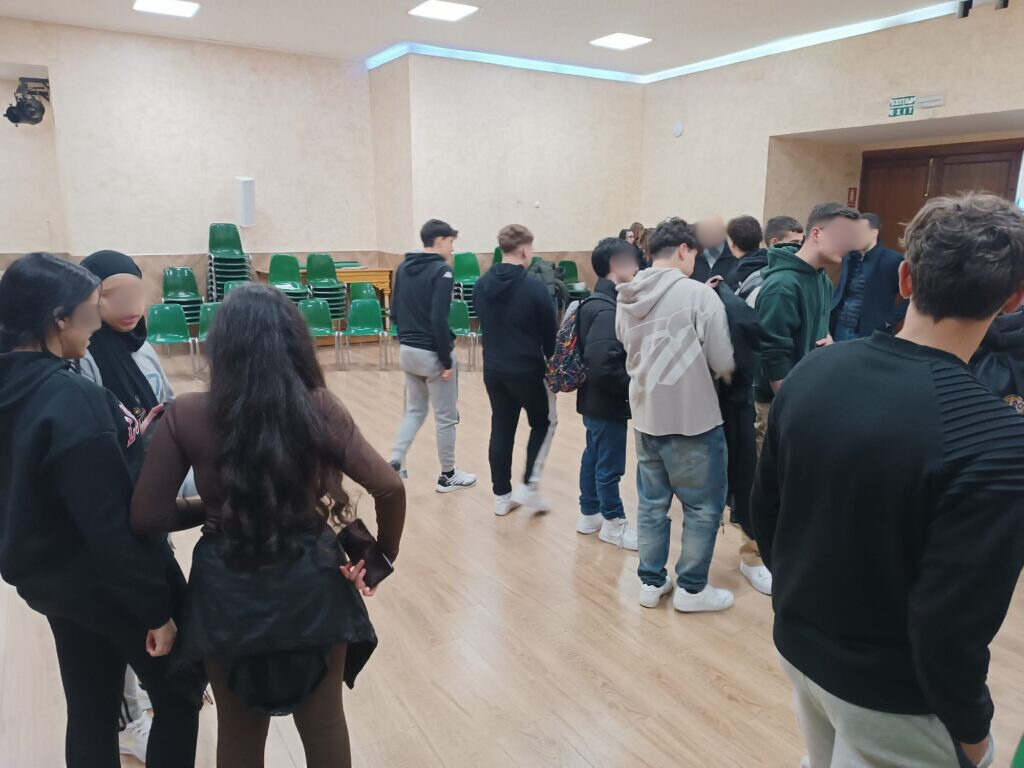
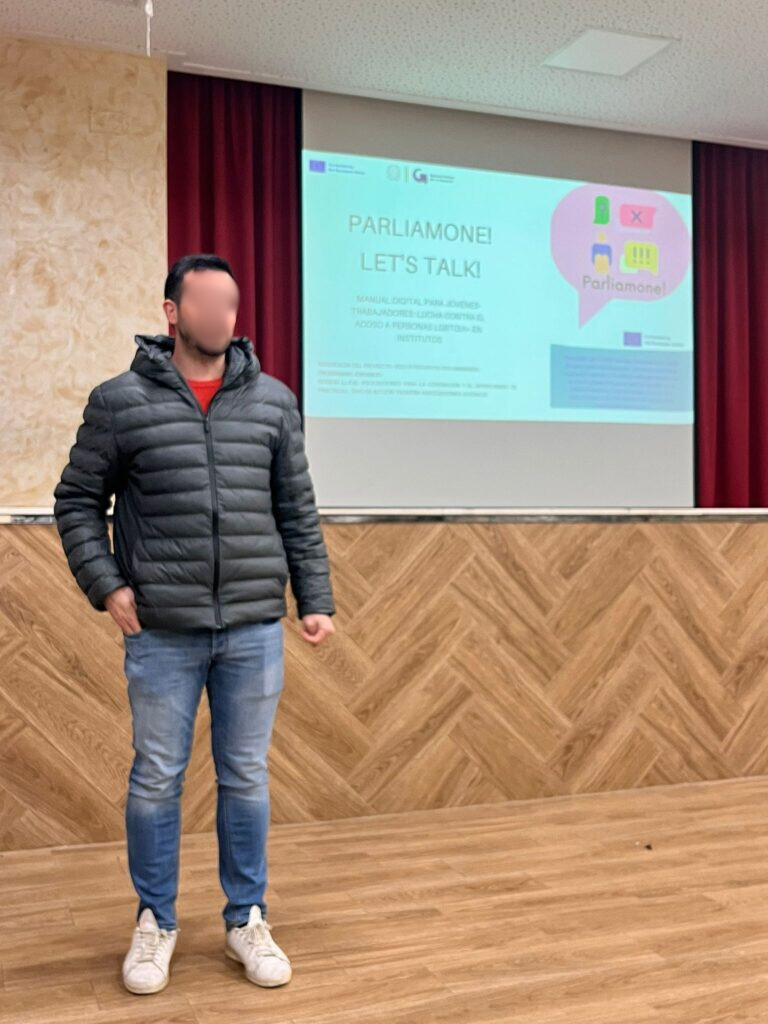
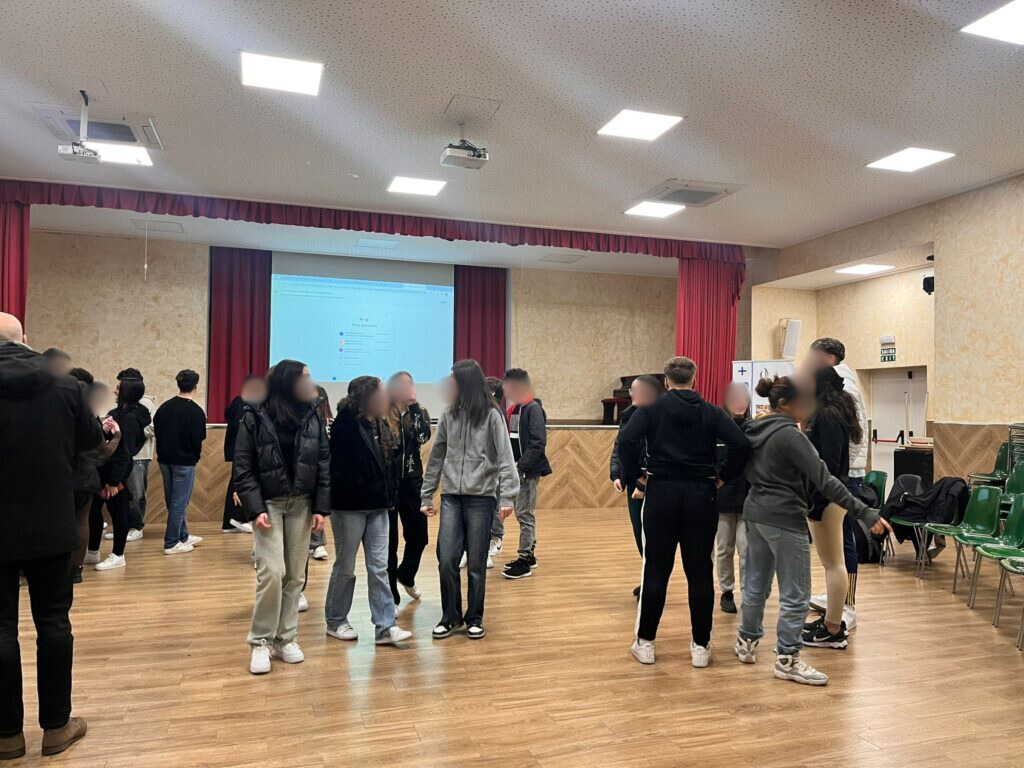
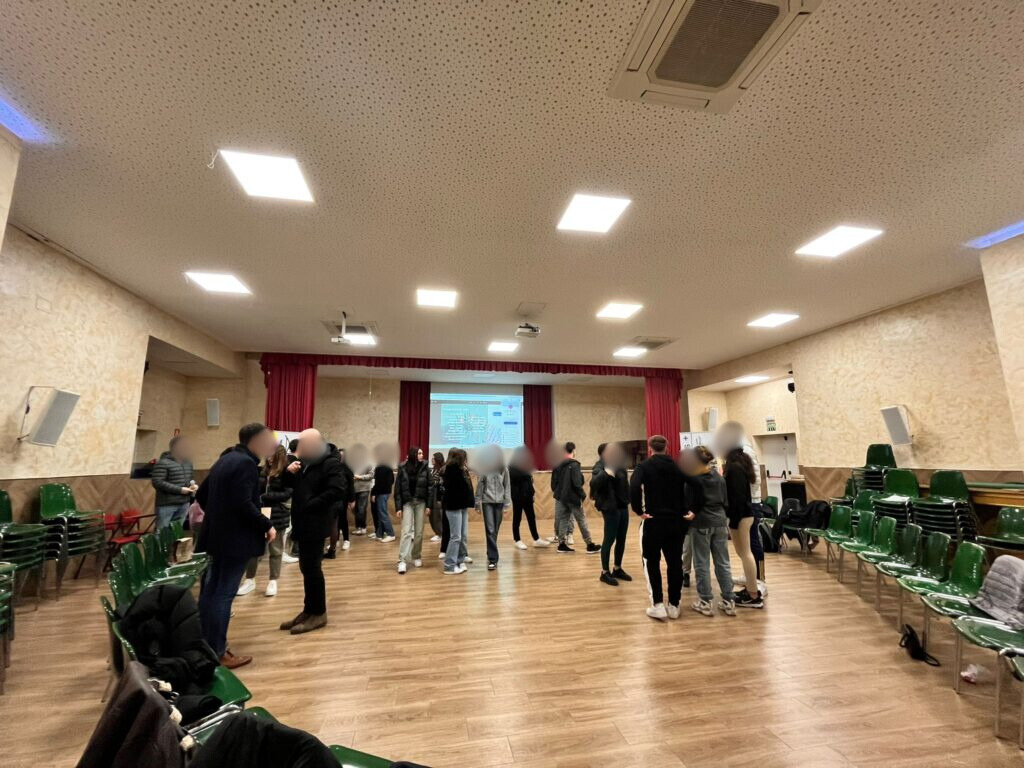

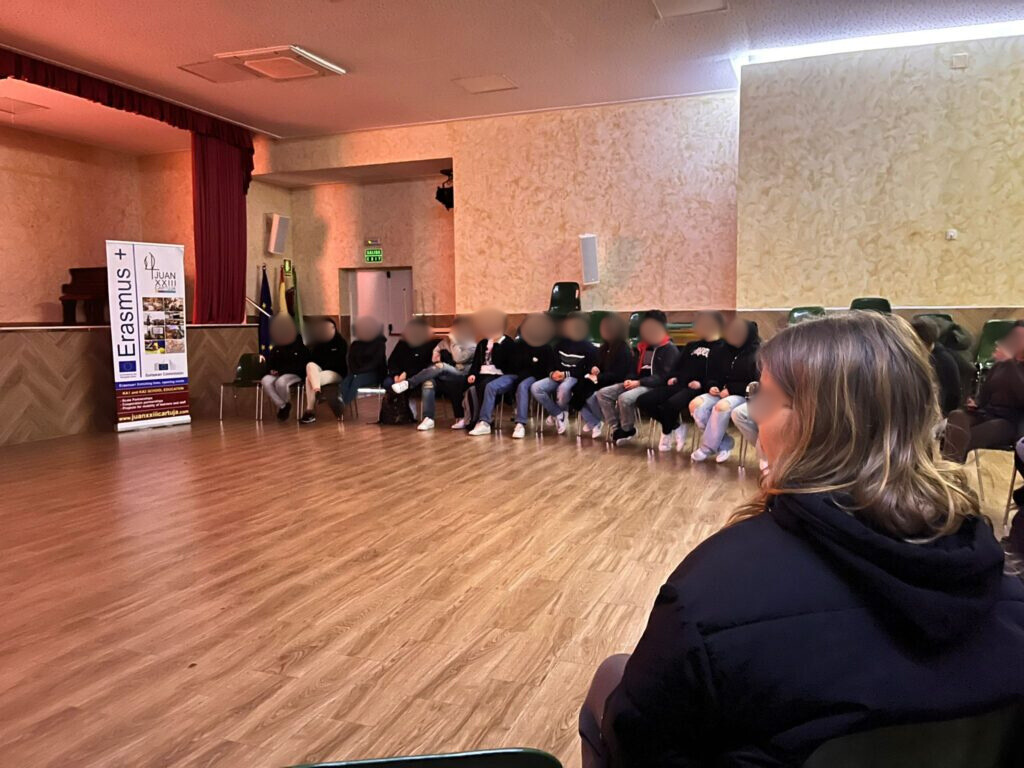
BULGARIA
Data: 25/04/2024
Luogo: Centro Giovanile Iniziative Internazionali per la Cooperazione di Razlog
Partecipanti: Facilitatori, Educatori, Studenti, Associazioni Scolastiche e Operatori Giovanili in totale 20 partecipanti
Introduzione: Il seminario locale si è tenuto nella città di Razlog nella Repubblica di Bulgaria. L’obiettivo principale era quello di identificare i diversi tipi di discriminazione e, soprattutto, la prevenzione del bullismo nei confronti degli studenti LGBTQIA+ nelle scuole e nei social media sotto forma di incitamento all’odio. In Bulgaria l’argomento è considerato un tabù, quindi il processo è stato organizzato utilizzando un approccio non formale al fine di creare uno spazio sicuro per facilitare una discussione e un lavoro di squadra per aumentare la consapevolezza e affrontare il problema.
Obiettivi: L’obiettivo principale del seminario è stato quello di facilitare una discussione sicura tra giovani studenti provenienti da contesti diversi, al fine di promuovere i diritti umani, la tolleranza e incoraggiare l’empatia al fine di prevenire il bullismo all’interno del sistema scolastico, nonché aumentare la consapevolezza delle sfide che lo impediscono.
Al fine di misurare il successo dell’evento, i partecipanti hanno svolto un breve quiz anonimo utilizzando lo strumento Mentimeter prima e dopo il seminario. I risultati mostrano che dobbiamo parlare di più dell’impatto delle nostre parole e delle nostre azioni e che è necessario lavorare di più insieme agli educatori scolastici per affrontare le sfide in modo più efficiente.
Sviluppo e conclusioni: Durante il seminario, ci siamo confrontati con due energizzanti per rompere il ghiaccio tra il gruppo e conoscerci, dato che veniamo da scuole e background diversi. Sottolineiamo che questo è stato fondamentale per il nostro lavoro, poiché il processo successivo è stato facilmente mantenuto.
Abbiamo continuato con un pre-questionario utilizzando Mentimeter su diversi argomenti riguardanti il bullismo, la discriminazione e la comunità LGBTQIA+.
Dopodiché abbiamo facilitato il brainstorming sui diversi tipi di discriminazione e abbiamo iniziato a identificare insieme ogni tipo e terminologia. Affrontare anche la sicurezza online e le buone pratiche contro l’incitamento all’odio.
Ha continuato con una presentazione sul progetto e ha fatto un riassunto del risultato dello strumento del manuale concentrandosi sugli educatori e sul loro lavoro quotidiano con i giovani. Ha anche incoraggiato una discussione sui problemi quotidiani degli studenti e su come affrontare correttamente le diverse situazioni.
Abbiamo concluso dividendoci in 4 gruppi. Ogni gruppo ha dovuto preparare una presentazione o un video su argomenti diversi, creando una campagna e affrontando i problemi.
a) Prevenzione del bullismo nelle scuole e più specificamente nei confronti degli studenti della comunità LGBT
b) Prevenzione del cyberbullismo nei social media e come stare al sicuro
c) Aumentare la consapevolezza utilizzando campagne sui social media
d) Linee telefoniche di supporto reciproco/aiuto per diversi scenari e approccio adeguato
Alla fine abbiamo fatto un’altra domanda di Mentimeter per misurare il successo dell’evento e abbiamo annunciato la nostra futura partecipazione all’incontro finale che si terrà a Granada, in Spagna.
Ogni partecipante ha ricevuto un certificato online per la sua partecipazione e ci ha inviato un feedback positivo sul progetto e sulla necessità di ulteriori seminari futuri e di lavorare su questo delicato argomento.
Nel complesso il seminario ha avuto successo e ha raggiunto i suoi obiettivi.
BULGARIA
Date: 25/04/2024
Location: Razlog’s International Initiatives for Cooperation Youth Center
Participants: Facilitators, Educators, Students, School clubs and Youth Workers in total 20 participants
Introduction: The local seminar was held in the town of Razlog in Republic of Bulgaria. The main objective was to identify the different types of discrimination and most importantly prevention of bullying directed at LGBTQIA+ students in schools and in social media in the form of hate speech. In Bulgaria the topic is considered a taboo, so the process was organized using non-formal approach in order to create a safe space to facilitate a discussion and team work to raise awareness and to address the issue.
Objectives: The main objective of the seminar was to facilitate a safe discussion between young students coming from different backgrounds in order to promote human rights, tolerance and to encourage empathy in order to prevent bullying within the school system, as well increase awareness of the challenges preventing that.
In order to measure the success of the event, the participants took a short anonymous quiz using the Mentimeter tool before and after the seminar. The results show, that indeed we must speak more about the impact of our words and actions and that more work is needed together with school educators in order to tackle the challenges more efficiently.
Development and Conclusions: During the seminar, we’ve stared with two energizers in order to break the ice between the group and to get to know each other, as we come from different schools and backgrounds. We point out, that this was crucial for our work, as the process after that was easily maintained.
We’ve continued with doing a pre-questionary using Mentimeter on several topics regarding bullying, discrimination and LGBTQIA+.
After that we facilitated brainstorming on different types of discrimination and started identifying each type and terminology together. Addressing also online safety and good practices against hate speech.
Continued with a presentation about the project and did a resume of the handbook instrument result focusing on the educators and their daily work with the youth. Also encouraged a discussion on the daily problems of students and how to properly approach different situations.
We’ve concluded by dividing in 4 groups. Each group had to prepare a presentation or video on different topic creating a campaign and addressing the issues.
a) Prevention of bullying in schools and more specifically towards LGBT community students
b) Prevention of cyberbullying in social media and how to stay safe
c) Increase awareness using social media campaigns
d) Mutual support/help hotlines for different scenarios and proper approach
At the end we did another Mentimeter question to measure the success of the event and announced our future participation in the final meeting taking place in Granada, Spain.
Each participant has received an online certificate for their participation and sent us a positive feedback about the project and the need for more future seminars and work towards this sensitive topic.
Overall the seminar was successful and reached it’s objectives.
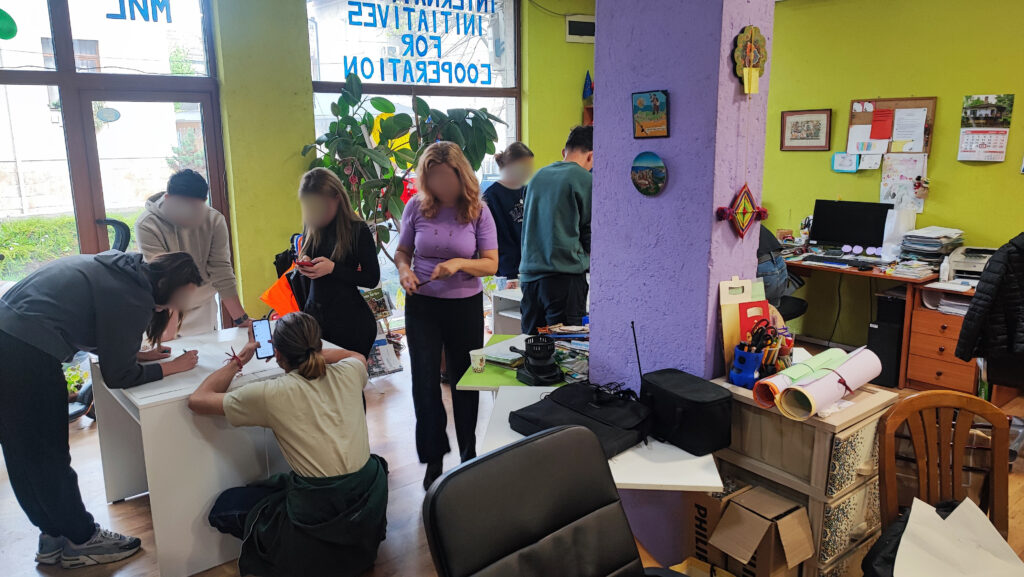
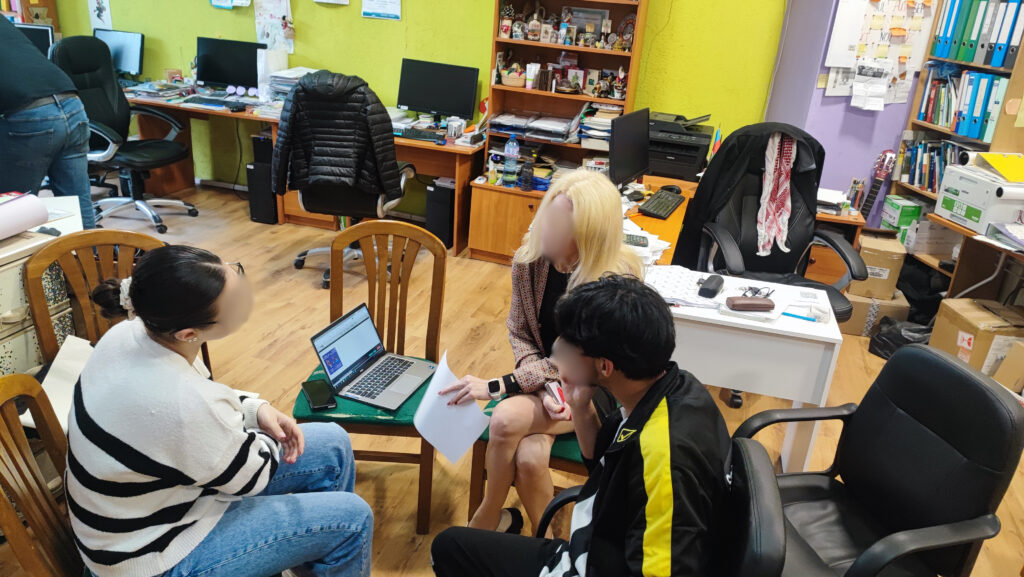
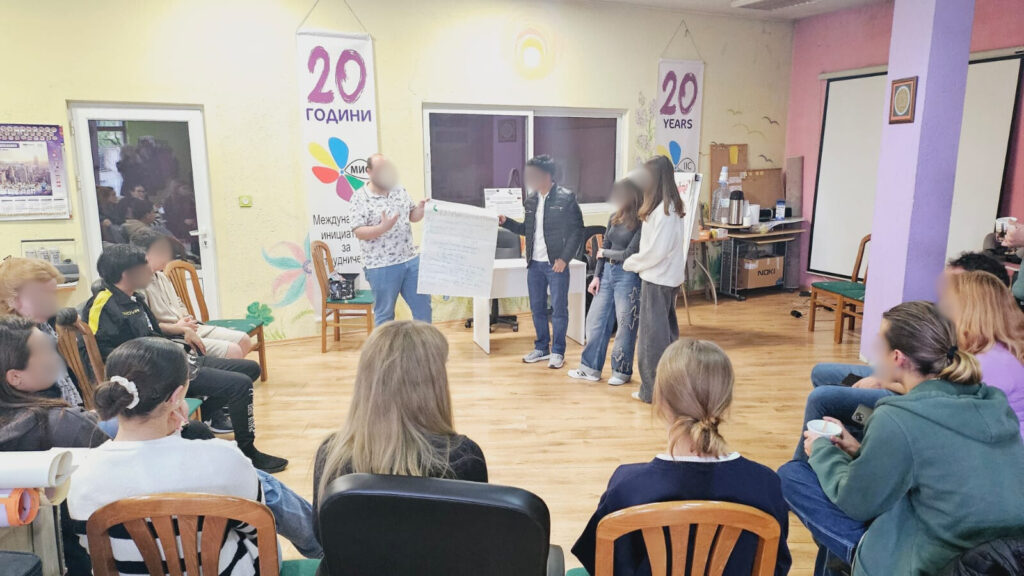

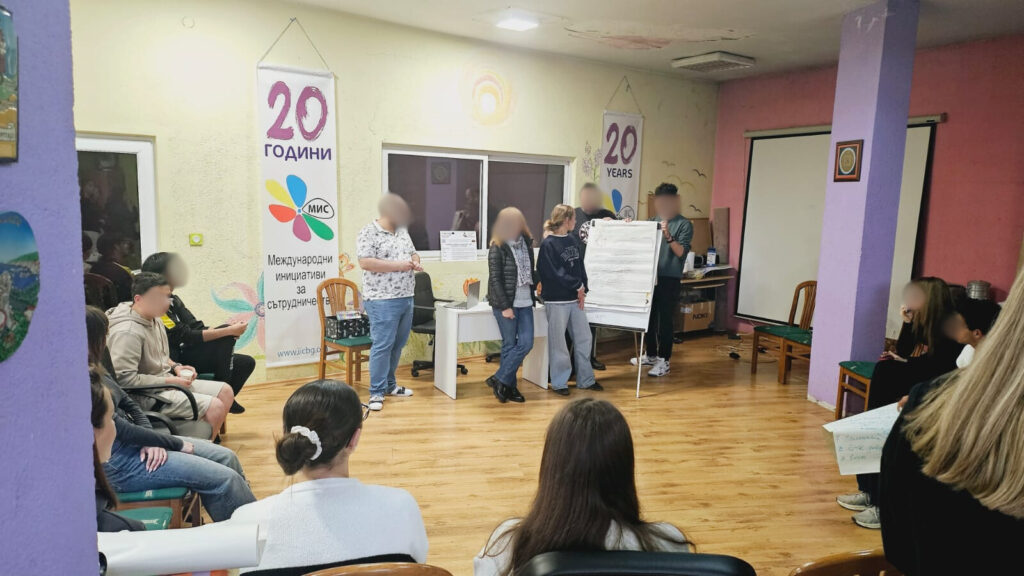
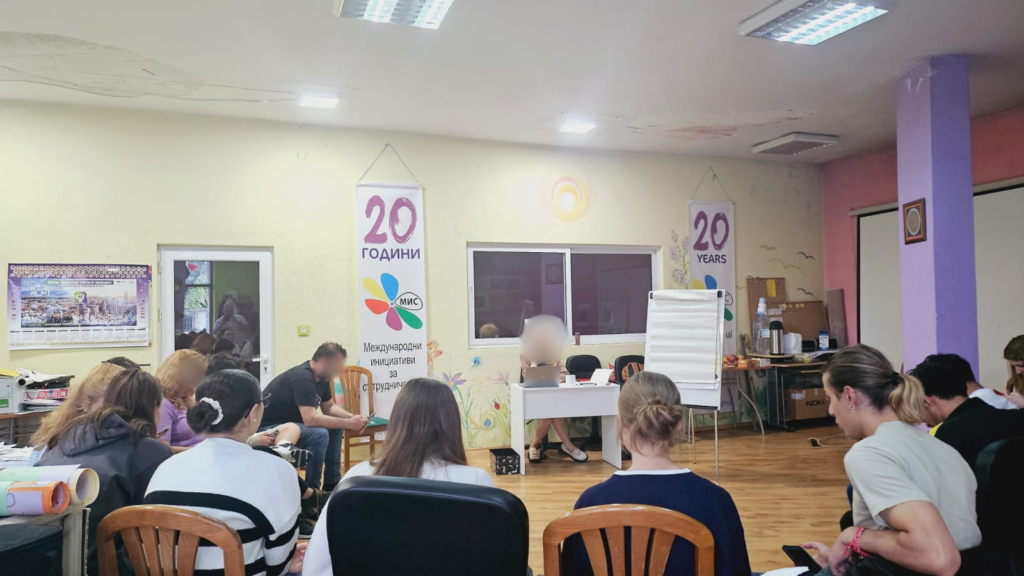

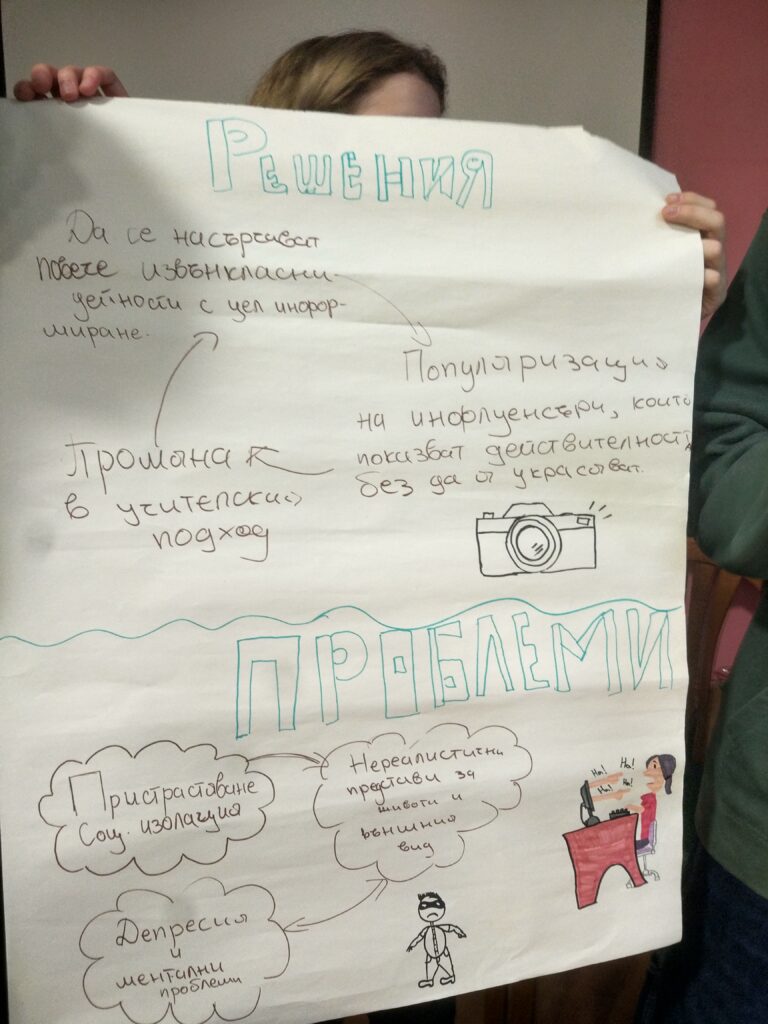

CLOSING MEETING GRANADA SPAIN
Granada, Spagna – Il 29 aprile 2024 è stato un giorno significativo per il progetto “Parliamone”,
finanziato dalla Commissione Europea, che ha celebrato il suo evento di chiusura presso il nostro
partner spagnolo AGIFODENT. L’incontro ha visto la partecipazione dell’ente capofila GAYCS
dall’Italia e della Bulgarian Youth Association dalla Bulgaria.
La riunione finale del progetto ha coinvolto due membri dello staff e un animatore socioeducativo
per entità partner, per un totale di 12 persone. Durante la giornata, i partecipanti hanno analizzato i
risultati delle varie attività svolte nel corso del progetto, valutando se gli obiettivi prefissati fossero
stati raggiunti. In particolare, è stata esaminata l’utilità del manuale digitale utilizzato durante gli
incontri nelle scuole locali. I dati raccolti tramite questionari agli studenti sono stati analizzati e
confrontati per valutare l’impatto di queste attività.
Durante l’evento, sono stati stipulati accordi fra le entità partner per la disseminazione dei risultati
del progetto e per valutare possibili future collaborazioni al fine di garantire la sostenibilità delle
iniziative anche dopo la sua conclusione. Attraverso questo incontro si è cercato di stimolare altre
organizzazioni a interessarsi al tema del bullismo LGBTQIA+ nelle scuole superiori e a avviare una
collaborazione in questo ambito. Si auspica che anche queste organizzazioni che abbiamo raggiunto
possano beneficiare dei risultati del progetto e replicare le attività di sensibilizzazione nelle scuole.
Inoltre, si è cercato di incentivare l’utilizzo del manuale digitale prodotto anche da parte di
animatori socioeducativi esterni al progetto, ampliando così il suo impatto e la sua diffusione.
In conclusione, l’evento di chiusura del progetto “Parliamone” è stato un successo, segnando il
completamento di un importante impegno volto a contrastare il bullismo LGBTQIA+ nelle scuole
attraverso l’educazione e la sensibilizzazione.
CLOSING MEETING GRANADA SPAIN
Granada, Spain – 29 April 2024 was a significant day for the European Commission-funded project
‘Let’s Talk’, which celebrated its closing event at our Spanish partner AGIFODENT. The meeting
was attended by the lead partner GAYCS from Italy and the Bulgarian Youth Association from
Bulgaria.
The final project meeting involved two staff members and one youth worker per partner entity, for a
total of 12 people. During the day, the participants analysed the results of the various activities
carried out during the project and assessed whether the set objectives had been achieved. In
particular, the usefulness of the digital handbook used during the meetings in local schools was
examined. The data collected through questionnaires to the students was analysed and compared to
assess the impact of these activities.
During the event, agreements were made between the partner entities to disseminate the results of
the project and to evaluate possible future collaborations in order to ensure the sustainability of the
initiatives also after its conclusion. Through this meeting, an attempt was made to stimulate other
organisations to take an interest in the topic of LGBTQIA+ bullying in high schools and to start
collaborating in this area. It is hoped that these organisations we reached will also benefit from the
project results and replicate the awareness-raising activities in schools.
In addition, efforts were also made to encourage the use of the digital handbook produced by youth
workers outside the project, thus expanding its impact and dissemination.
In conclusion, the closing event of the “Let’s talk about it” project was a success, marking the
completion of an important effort to combat LGBTQIA+ bullying in schools through education and
awareness-raising.
